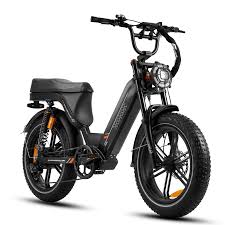Introduction
In recent years, electric bikes, or e-bikes, have surged in popularity as a sustainable and efficient mode of transportation. With the growing concerns over environmental pollution, traffic congestion, and the rising costs of fuel, e-bikes offer an attractive alternative to traditional gasoline-powered vehicles. This article explores the many advantages of electric bikes, their impact on urban mobility, and their potential to revolutionize the way we commute.
The Advantages of Electric Bikes
1. Environmental Benefits
One of the most compelling reasons to embrace electric bikes is their environmental impact. E-bikes produce zero emissions, making them an eco-friendly choice for urban transportation. Unlike cars and motorcycles that rely on fossil fuels, e-bikes run on electricity, which can be generated from renewable sources. This significantly reduces the carbon footprint associated with commuting, contributing to cleaner air and a healthier planet.
2. Cost Efficiency
Electric bikes are also cost-efficient. The initial investment in an e-bike might be higher than a traditional bicycle, but the long-term savings are substantial. E-bikes have lower maintenance costs compared to cars and motorcycles. Additionally, the cost of electricity to charge an e-bike is significantly less than the cost of gasoline. Over time, e-bike owners can save a considerable amount of money on fuel, maintenance, and parking fees.
3. Health Benefits
While e-bikes provide an electric bike assist, they still require pedaling, which offers significant health benefits. Riding an e-bike can improve cardiovascular health, enhance muscle strength, and boost overall fitness levels. It also promotes mental well-being by reducing stress and increasing exposure to the outdoors. E-bikes make cycling accessible to a broader range of people, including those who might find traditional biking too strenuous.
4. Convenience and Accessibility
E-bikes provide a convenient mode of transportation, especially in urban areas. They allow riders to navigate through traffic with ease and avoid the hassle of parking. E-bikes are also accessible to a wider demographic, including older adults and individuals with physical limitations. The electric assist feature makes it easier to tackle hills and longer distances, making commuting less daunting and more enjoyable.
Impact on Urban Mobility
1. Reducing Traffic Congestion
Electric bikes have the potential to alleviate traffic congestion in crowded cities. As more people opt for e-bikes, there will be fewer cars on the road, leading to less traffic and shorter commute times. This shift can also reduce the wear and tear on urban infrastructure, decreasing the need for frequent road repairs.
2. Enhancing Public Transportation
E-bikes can complement public transportation systems by providing a convenient solution for the “last mile” problem. Commuters can use e-bikes to travel to and from public transit stations, making their overall journey more efficient. This integration can increase the use of public transportation, reduce car dependency, and further decrease urban congestion.
3. Promoting Sustainable Cities
By encouraging the use of electric bikes, cities can promote a more sustainable lifestyle. E-bike infrastructure, such as dedicated bike lanes and charging stations, can be developed to support this shift. Cities that prioritize cycling can enhance the quality of life for their residents by reducing pollution, noise, and the demand for parking spaces.
The Future of Electric Bikes
1. Technological Advancements
The future of electric bikes looks promising, with continuous advancements in technology. Innovations in battery life, motor efficiency, and lightweight materials are making e-bikes more efficient and affordable. Smart e-bikes with integrated GPS, theft protection, and connectivity features are becoming increasingly popular, offering a seamless and secure riding experience.
2. Policy Support
Government policies and incentives play a crucial role in the adoption of electric bikes. Subsidies, tax breaks, and investment in cycling infrastructure can accelerate the shift towards e-bikes. By supporting e-bike initiatives, governments can promote sustainable transportation and achieve environmental goals.
3. Changing Attitudes
As awareness of environmental issues grows, so does the acceptance of alternative transportation methods like e-bikes. Public attitudes are shifting towards more sustainable and healthy lifestyle choices. The increasing popularity of e-bikes reflects a broader cultural change towards eco-friendly and efficient urban living.
Conclusion
Electric bikes represent a significant step forward in the quest for sustainable urban mobility. With their numerous benefits, including environmental sustainability, cost efficiency, health advantages, and convenience, e-bikes are poised to transform the way we commute. As technology advances and public support grows, electric bikes will likely become a staple in urban transportation, paving the way for cleaner, greener, and more efficient cities.



